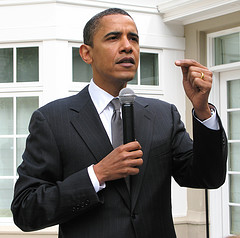I saw Guy Kawasaki talk about his new book today at SXSWi.
Here’s what Guy had to say about creating enchanting customers as today’s talk about his new book, Enchantment.
- Project Likability
- Great smile
- Dress as a peer
- Perfect handshake
- Demonstrate Trustworthiness
- Trust others first to build trust
- Be a baker, not an eater (bring more to the table, don’t bring a ‘zero-sum’ attitude and try to get as much for yourself)
- Default to ‘yes’
- Get Ready
- Do something great (DICEE: deep, intelligent, complete, empowering, elegant)
- Make it short, sweet and swallowable
- Conduct a pre-mortem – Pretend it fails, talk about why, then preemptively address those factors
- Launch
- Tell a story (Mine: I wanted a place as gorgeous and relaxing as the songs)
- Plant many seeds (send to tons of people, diversity of bloggers)
- Use salient points (iPod – NOT that it’s 32 GB, that it holds 4000 songs)
- Overcome Resistance
- Find a bright spot
- Provide social proof
- Enchant the influencers
- Endure
- Don’t use/rely on money (typically the enemy of enchantment)
- Invoke reciprocation
- When thanked say, “I know you would have done the same for me.”
- Let people pay you back
- Build an ecosystem (view your sector in totality, build partners)
- Be able to present, speak, pitch. (customize introductions. do something local before presentation to refer to, show of interest)
- Sell your dream
- 10 slides, 20 mins, 30 pt. font
- Technology
- Remove speed-bumps
- Add value through: insight, information, or assistance
- Respond w/in 24hrs., engage many people, often
- Enchant Up
- Drop everything for your boss’s requests
- Prototype and run by fast
- Deliver bad news early
- Enchant Down (provide a M.A.P)
- Teach mastery
- Provide autonomy
- Work for a purpose



